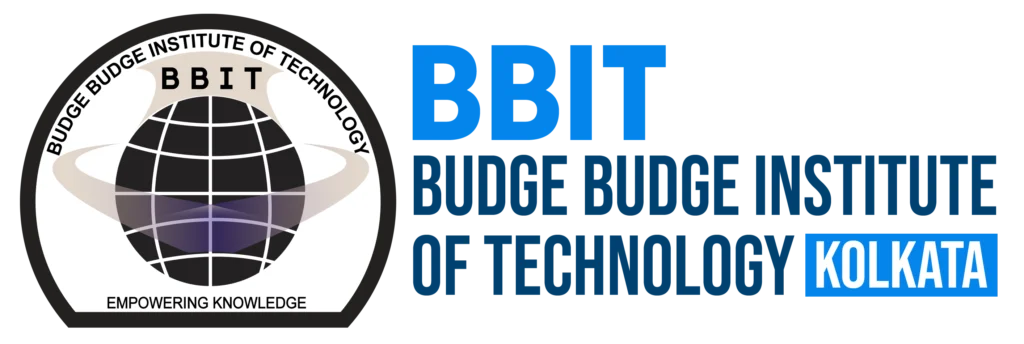B.Tech in Civil Engineering (CE)
DURATION: 3 YEARS
Become Leaders of Tomorrow!
BBIT College, Kolkata offers a Bachelor of Technology (B.Tech.) in Civil Engineering, an undergraduate engineering degree program with a duration of four years. This course primarily focuses on the design and development of various infrastructure projects such as transportation systems, buildings, bridges, highways, flyovers, and more.
Civil engineers from BBIT College are equipped with the skills and knowledge to work not only in the construction industry but also in diverse sectors including oil and energy, transportation, petroleum, environmental, power and electric utilities, and chemical industries, where infrastructure projects and construction facilities play a crucial role.

Program Outcomes (POs):
Engineering knowledge
Apply the knowledge of natural sciences, engineering fundamentals, and specialized knowledge to the solution of real-life problems.
Problem analysis
Identify, formulate, review research literature, and analyze complex engineering problems reaching substantiated conclusions using first principles of mathematics, natural sciences, and engineering sciences.
Design/development of solutions
Design solutions for complex engineering problems and design system components or processes that meet the specified needs with appropriate consideration for public health and safety, and cultural, societal, and environmental considerations.
Conduct investigations of complex problems
Use research-based knowledge and research methods including the design of experiments, analysis and interpretation of data, and synthesis of the information to provide valid conclusions.
Modern tool usage
Create, select, and apply appropriate techniques, resources, and modern engineering and IT tools including prediction and modeling to complex engineering activities with an understanding of the limitations.
The engineer and society
Apply reasoning informed by contextual knowledge to assess societal, health, safety, legal, and cultural issues and the consequent responsibilities relevant to the professional engineering practice.
Environment and sustainability
Understand the impact of professional engineering solutions in societal and environmental contexts and demonstrate the knowledge of, and need for, sustainable development.
Ethics
Apply ethical principles and commit to professional ethics and responsibilities and norms of engineering practice.
Individual and team work
Function effectively as an individual, and as a member or leader in diverse teams, and in multidisciplinary settings.
Communication
Communicate effectively on complex engineering activities with the engineering community and with society at large, such as being able to comprehend and write effective reports and design documentation, make effective presentations, and give and receive clear instructions.
Project management and finance
Demonstrate knowledge and understanding of engineering and management principles and apply these to one’s own work, as a member and leader in a team, to manage projects and in multidisciplinary environments.
Life-long learning
Recognize the need for, and have the preparation and ability to engage in independent and life-long learning in the broadest context of technological change.
Program Specific Objectives (PSOs):

Critically analyze complex power system scenarios and propose solutions using acquired theoretical and practical knowledge.

Work on defined projects by interpreting power system data to provide real-time solutions to system issues

Identify optimal solutions to enhance power transfer capability, improve power quality, and ensure reliability.
This program is ideal for individuals passionate about manufacturing and designing power systems, who possess strong problem-solving abilities and a desire to pursue rewarding careers in electrical system design, development, and maintenance, ensuring quality, safety, reliability, and sustainability.
Program Educational Objectives (PEOs) of Civil Engineering Department:
Domain Knowledge
To equip graduates in Civil Engineering with fundamental concepts of basic science, engineering knowledge, and technical competency to work effectively in various inter-disciplinary fields.
Design and Engineering
Graduates will develop the necessary skill and proficiency for the design of Structural and Hydraulic Systems and their applications.
Projects and Laboratories
To provide practical exposure to modern civil engineering systems and facilitate regular industrial training to meet the basic requirements of the construction process and other industries.
Research and Development
To encourage engineering graduates to undertake innovative research and development work for the benefit of society.
Professional Outlook
To impart professional and ethical attitudes, skills for effective communication, and teamwork in multi-disciplinary environments for contributing effectively to the requirements of industry and academia.
Program Specific Outcomes (PSOs) of Civil Engineering Department:
Core Courses
Students will refresh and apply the basic concepts in natural sciences in engineering in general and Civil Engineering in particular, developing the confidence to solve real-life problems in Civil Engineering through classroom exercises.
Professional Elective Courses
Students will specialize in advanced areas of Civil Engineering, enabling them to take up specialized professions encompassing industry and academia.
Free Elective Courses
Inter-disciplinary skills are developed by cultivating fundamental concepts of mathematics, computer programming, and physics including mechanics towards mechanical, electrical, and electronics engineering from civil engineering.
Projects & Seminars
To instill in students a high sense of professionalism, the ability to work as part of teams on multi-disciplinary projects and in diverse professional environments, necessary for a successful career together with strong technical, communication, and presentation skills.
Potential Job Roles
Civil Engineer
Designs, constructs, and maintains infrastructure projects such as roads, bridges, and buildings, ensuring they meet safety, environmental, and regulatory standards.
Transportation Engineer
Focuses on the planning, design, and management of transportation systems, including highways, airports, and railways, to improve efficiency and safety.
Water Resource Engineer
Manages water-related projects including flood control, water supply systems, and wastewater treatment, ensuring sustainable and efficient water use.
Structural Engineer
Specializes in designing and analyzing structures to ensure they can withstand environmental forces and meet safety requirements.
Environmental Engineer
Works on projects aimed at improving environmental quality, such as waste management systems, pollution control, and sustainable practices.
Civil Engineering Technician
Assists civil engineers by preparing drawings, conducting site inspections, and ensuring that construction projects adhere to plans and specifications.
Program Overview & Structure
Theory:
- English Language and TechnicalCommunication
- Physics – 1
- Mathematics-1
- Basic Electricaland Electronic Engineering – 1
- Engg. Mechanics
Practical:
- Physics – 1
- Basic Electrical and Electronic Engineering -1
- Workshop Practice
- Language Laboratory
- Extra-Curricular Activities (NSS/NCC/NSO etc.)
Theory:
- Basic Computation and Principles of Computer Programming
- Chemistry-1
- Mathematics-2
- Basic Electrical and Electronic Engineering – II
- Engineering Thermodynamics and Fluid Mechanics
Practical:
- Basic Computation and Principles of Computer Programming
- Chemistry-1
- Basic Electrical and Electronic Engineering- II
- Basic Engg Drawing and Computer Graphics
Theory:
- Values & Ethics in Profession
- Physics - 2
- Basic Environmental Engineering & Elementary Biology
- Solid Mechanics
- Surveying
- Building Material & Construction
Practical:
- Physics - 2
- Solid Mechanics
- Surveying Practice I
- Building Design & Drawing
Theory:
- Numerical Methods
- Mathematics - 3
- Fluid Mechanics
- Structural Analysis
- Soil Mechanics
Practical:
- Technical Report Writing & Language Lab Practice
- Numerical Methods
- Fluid Mechanics
- Surveying Practice -II
- Soil Mechanics Lab - I
Theory:
- Economics for Engineers
- Foundation Engineering
- Design of RC Structures
- Concrete Technology
- Engineering Geology
Practical:
- Soil Mechanics Lab – II
- Concrete Laboratory
- Quantity Surveying, Specifications and Valuation
- Engineering Geology Laboratory
Theory:
- Principles of Management
- Highway & Transportation Engineering
- Design of Steel Structure
- Construction Planning and Management
Professional Elective - I:
- Bridge Engineering
- Pre-stressed Concrete
- Structural Dynamics and Earthquake Engineering
Free Elective - I:
- Operations Research(M)
- Human Resource Management(HSS)
- Materials Handling(ME)
Practical:
- Highway & Transportation Engg Lab
- Detailing of RC and Steel Structures
- CAD Laboratory
- Seminar
Theory:
- Environmental Engineering
- Water Resource Engineering
- Group Discussion
- Industrial Training
Professional Elective - II:
- Advanced Foundation Engineering
- Soil Stabilization and Ground Improvement Techniques
- Advanced Highway and Transportation Engineering
Professional Elective III:
- Advanced Structural Analysis
- Hydraulic Structures
Free Elective II:
- Engineering Materials
- Electrical and Electronic Measurement
Practical:
- Project Part I
- Environmental Engineering Lab
- Civil Engineering Practice Sessional
- Material Testing Lab
- Electrical and Electronic Measurement Laboratory
Theory:
- Organisational Behaviour
- Project Management
- Structural Engineering Design Practice
Professional Elective - IV:
- Environmental Pollution and Control
- Water Resource Management and Planning
- Remote Sensing and GIS
Professional Elective V:
- Finite Element Method
- Dynamics of Soils & Foundations
- Design of Tall Buildings
- Pavement Design
Practical:
- Project Part-2
- Grand viva
Eligibility Criteria
B. Tech: Sr. Secondary (10+2) in PCM/PCMB with minimum 50% marks from recognized Board / University
Fees Structure
24 Months EMI
₹4,583*
Interest free
Per Semester Fee
₹27,500*
Full Program Fee
₹1,65,000
Meet our Top Rank Faculties

Prof. (Dr.) Jyoti Kusum Acharya
Ph.D, Professor

Prof. (Dr.) Tushar Kanti Dey
Ph.D, Professor

Prof. (Dr.) Sujata Purkayastha
Ph.D, Associate Professor

Prof. (Dr.) Sanghamitra Medda
Ph.D, Associate Professor

Prof. Sumit Kanjilal
M.Tech, Assistant Professor

Prof. Krishnan Pal
M.Tech, Assistant Professor

Prof. Chandan Kumar
M.Tech, Assistant Professor

Prof. Chaiti Ray
M.Tech, Assistant Professor

Prof. Tapabrata Roy
M.Tech, Assistant Professor

Prof. Chinmoy Pal
M.Tech, Assistant Professor

Prof. Priya Rai
M.Tech, Assistant Professor

Prof. Anindya Roy Pradhan
M.Tech, Assistant Professor

Prof. Sayan Deb
M.Tech, Assistant Professor

Prof. Pritiparna Ghoshal
M.Tech, Assistant Professor
Upraise your Career Now with BBIT's M.Tech Program.

State-of-the Art Laboratories

Vision
To be a dynamic and innovative leader in civil engineering education, driving forward reliable and sustainable solutions for infrastructure development. Our goal is to make significant contributions to state, national, and global infrastructure, establishing ourselves as a premier institution in advancing civil engineering practices.

Mission
To provide high-quality education that transforms students into world-class civil engineers. We aim to equip our students with cutting-edge skills and contemporary knowledge, fostering excellence in both disciplinary and interdisciplinary research, as well as state-of-the-art design practices.

